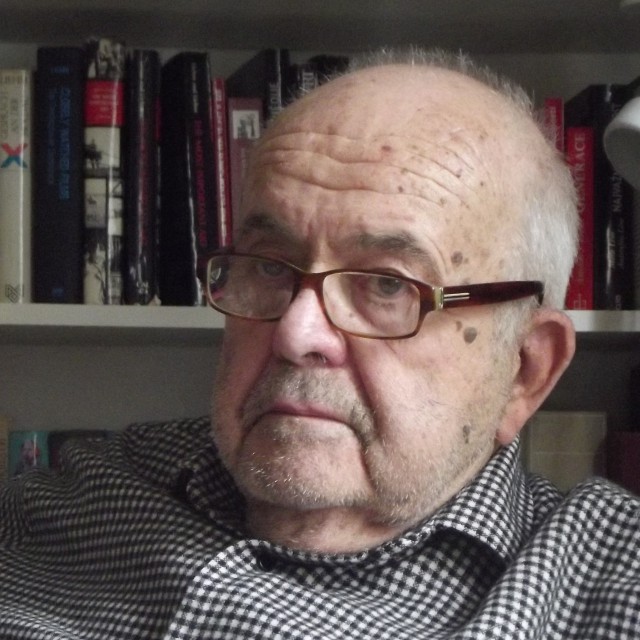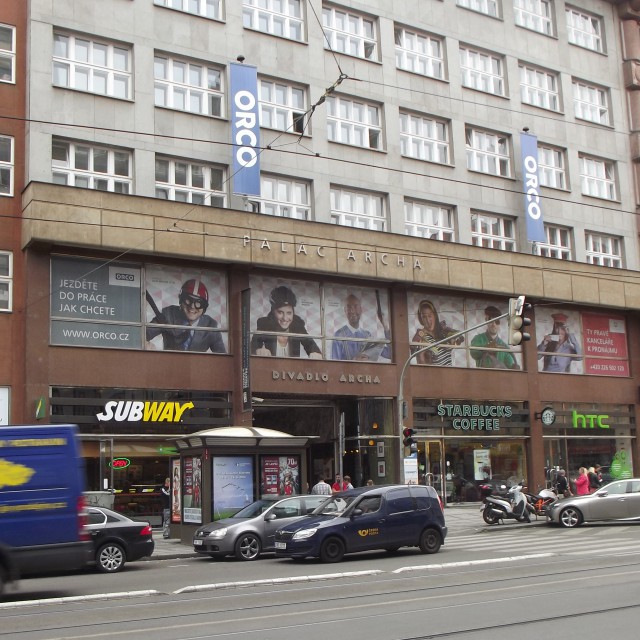The theater which was left
The interwar-period avant-garde theater director Emil František Burian spent the war years 1941-1945 in captivity, at first in Theresienstadt and later in concentration camps. By a miracle he survived the sinking of the Cap Arcona in the waters of the Baltic Sea. He returned to Prague in the second half of May 1945, due to a personal rescue mission of one of his young supporters Antonín J. Liehm. Liehm brought Burian back to Prague and despite the horrors he had experienced in the concentration camps and his poor physical condition, Burian immediately started to work again. This was a time when the Prague theaters were being reallocated and Burian hoped to get back his original D34 Theater in the Mozarteum. However, the Mozarteum had already been taken. The only unoccupied theater that was left was located at the Na Poříčí Street 26, where the Legiobanka had already provided a space for theater in 1938. And now, in times of freedom, Burian had to set up his theater here again: "He came back to Prague three weeks after the end of the war. He went to Poříčí and named the theater 'the theater that was left,'" says his former colleague Antonín J. Liehm. Later, Burian gave it the name D46 according to the year of the season. His first play after his return was Romeo and Juliet, subtitled "The Dream of a Prisoner." Although the play was based on Shakespeare's original drama, it drew heavily from Burian's experiences with the concentration camps. His first postwar voiceband used the verses of František Hrubín. "Hrubín lived in Žižkov and I'd come to his place every day for a few new pages that I'd take to the theater. And Burian rehearsed it straight away," says A. J. Liehm. The voice band was called "Job's Night" (Jobova noc).
Hodnocení
Hodnotilo 0 lidí
Routes
Not a part of any route.
Comments
No comments yet.



